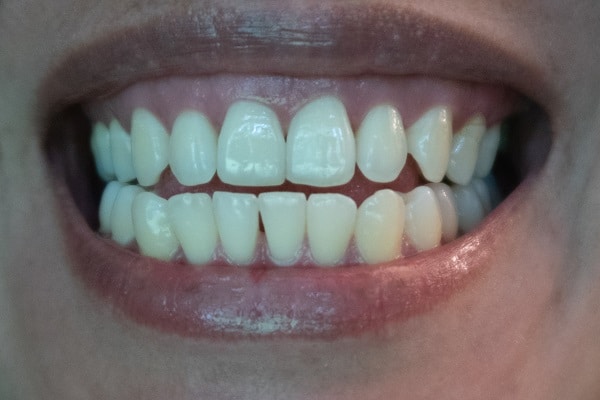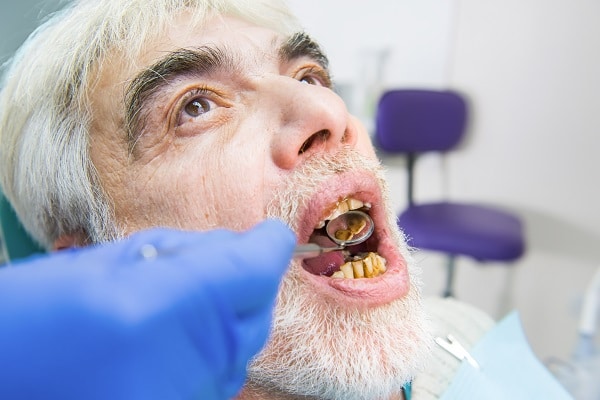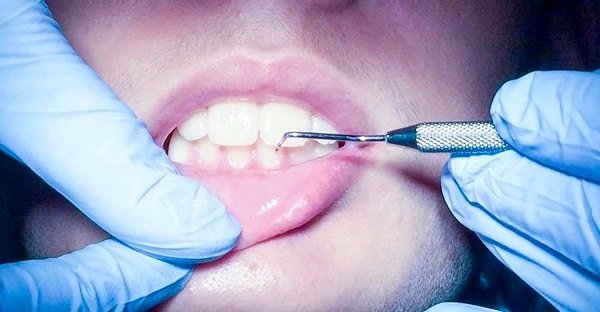Teeth are one of the most critical parts of the human body. Not only do they allow us to chew and digest our food, but they also play a crucial role in our appearance. Your teeth are usually one of the first things people notice about you, so it feels good to keep them looking nice. Unfortunately, teeth can also be one of the first places to show signs of aging. This blog post will detail some of the ways your teeth change as you get older.
Contents
Teeth Shift

As you age, your jawbone slowly starts to shrink. The shrinking causes your teeth to shift and creates a tighter space between your gums and teeth. This can be very uncomfortable and make it very difficult to chew food. In some cases, this bone loss can happen at an alarming rate, which can cause your teeth to shift quickly. If you experience discomfort in your jawbone or your teeth are shifting, speak with a dentist about ways to keep your teeth in place.
Enamel Weakens

Over time, the enamel in your teeth begins to wear away slowly. This can affect your teeth in a variety of ways. First and foremost, it makes them more susceptible to tooth decay and cavities. Enamel protects the inner parts of your teeth from bacteria, so when it weakens, you are less protected against dental problems. Additionally, weakened enamel makes your teeth look gray and dull, and it can cause them to chip and crack more easily.
Teeth Yellow

Just as the enamel in your teeth wears away over time, so does their whiteness. This is a normal part of aging, but it can make you look older if you don’t maintain your teeth’ natural color. If you smoke, drink coffee, or red wine, or if you are experiencing the effects of aging on your teeth, make sure to keep them looking at their brightest by brushing with a whitening toothpaste and flossing regularly.
Gums Recede
As you get older, the blood vessels in your gums start to shrink, and it becomes harder for them to stay healthy. This process is called gum recession, and it can cause your teeth to become loose and eventually fall out. Gum recession often starts with a small cavity or crack near or under one of your teeth, but if you don’t treat it, it can spread to the rest of your mouth and cause you to lose all your teeth.
Teeth Sensitivity

One of the more uncomfortable side effects of aging is that your teeth become more sensitive as you age. It’s normal for this sensitivity to be worse after you eat hot or cold foods, brush your teeth too aggressively, or use harsh mouthwash. To combat the pain that comes with this sensitivity, speak with your dentist about getting a particular type of toothpaste. You can also visit your dentist regularly so they can keep an eye on any signs of decay in your teeth.
Nerves Shrink

As you age, your nerves shrink and become more compact. This leads to a condition called “shrinkage,” in which your teeth can become sensitive to hot and cold temperatures while eating and drinking. Although you can combat the pain from this sensitivity with a particular type of toothpaste, there isn’t much else that you can do. If you experience shrinkage in your teeth, make sure to contact a dentist immediately, as it is not something that you should not ignore.
Conclusion
All of these changes in your teeth can occur as you age and affect how you look and how comfortable you are. To combat damage to your teeth, make sure to brush with protective toothpaste and floss regularly while avoiding foods and drinks that could be damaging. If any symptoms become severe or don’t go away on their own, make an appointment to see a dentist as soon as possible. They will be able to give you the best solutions to your dental issues while helping you feel more confident in your pearly whites!


